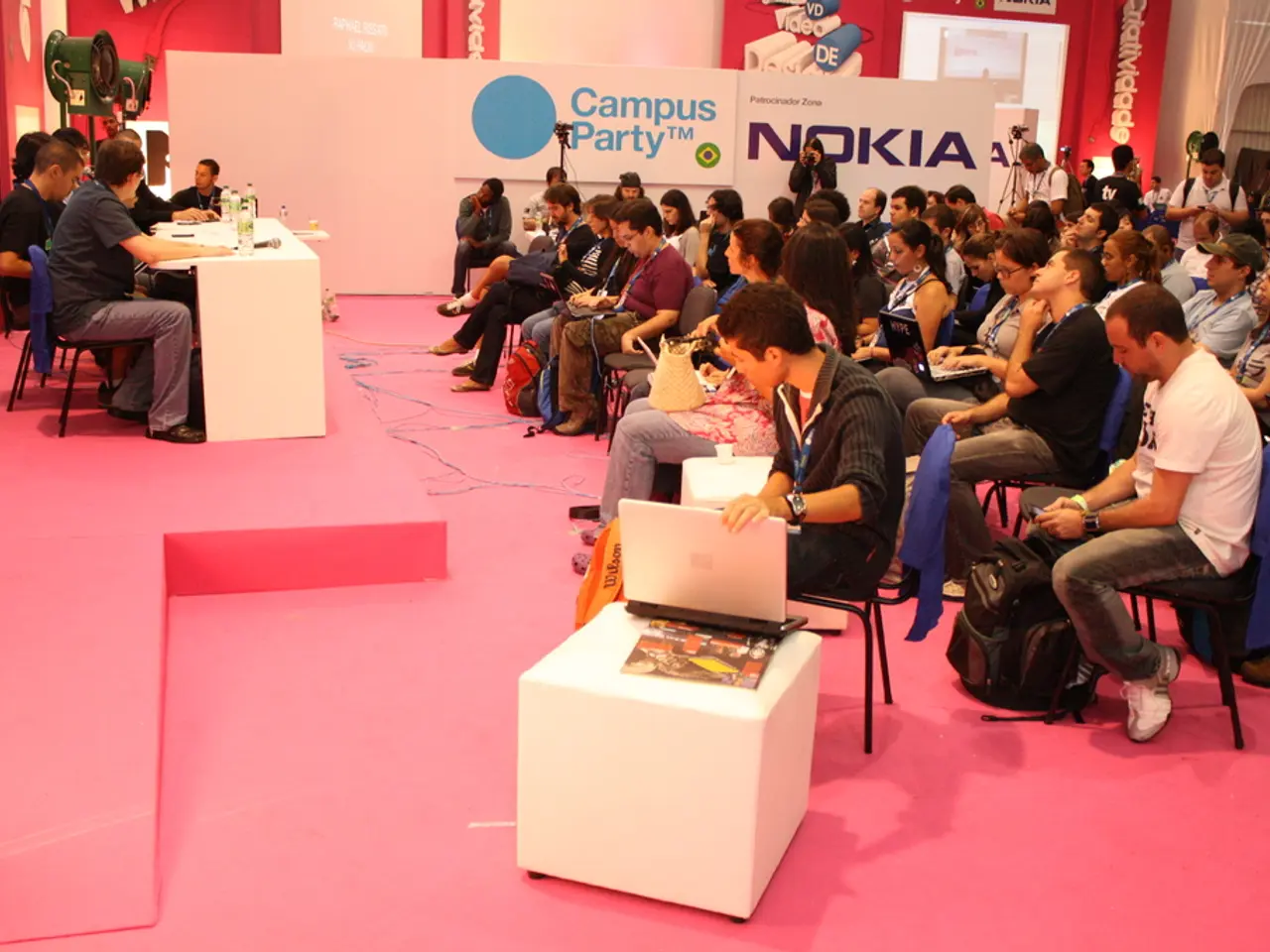Cancellation of the outdoor showing of "Barbie" in Noisy-le-Sec, spurred by outside influence
In the heart of France, the picturesque town of Noisy-le-Sec has found itself embroiled in a cultural dispute. The cancellation of the outdoor screening of the film "Barbie" (2023), starring Margot Robbie and Ryan Gosling, has sparked a heated debate, with local opposition leading to the event's cancellation on August 8, 2025 [1][3][5].
The film, which has achieved global success, attracting nearly 6 million spectators in France, was part of the town's summer outdoor cinema sessions, following resident consultations [2]. However, the screening in the Londeau neighborhood was met with opposition from a small group of residents, who threatened violence against city agents, as had happened in the past in the same neighborhood [3].
The mayor of Noisy-le-Sec, Olivier Sarrabeyrouse, a communist elected in 2020, has condemned the threats as politically motivated by a small extremist minority acting out of obscurantism and fundamentalism, instrumentalized for political ends [1]. He emphasized that the screening was a popular, inclusive summer activity for residents, especially children, and that the film was officially classified as suitable for all audiences in France. The mayor has filed a formal complaint against the individuals responsible for the threats, describing the incident as an attempt to create "cultural no-go areas" and a "low-level political manipulation." The complaint is supported by the Minister of Culture, Rachida Dati, who has deplored the cancellation as a "grave attack on programming" that deprives families and children of a cultural activity [1][3].
The Bobigny Public Prosecutor's Office has opened an investigation into "threats, violence, or acts of intimidation" related to the cancellation [3]. The police prefect of Paris has also taken the matter to the judiciary, highlighting the seriousness of the incident. The episode has sparked a broader nationwide discussion about religious fundamentalism, social cohesion, and the impact of such threats on public cultural events in France [5].
Aurélie Trouvé, deputy of the Insoumise constituency, expressed regret that families and children who aren't going on vacation are being deprived of cultural activities during the summer [4]. The opposition to the screening of "Barbie" was led by an individual, according to Olivier Sarrabeyrouse, the PCF mayor of the city. However, he did not specify who his suspicions were directed at, stating that the incident occurred "in an electoral context" [1].
The controversy surrounding "Barbie" has sparked a range of opinions, with some accusing the film of 'promoting LGBTQ+ stories', while others condemn it as 'neo-feminist propaganda' [1]. A complaint is underway for obstruction of the exercise of the freedom of artistic creation diffusion. This incident serves as a reminder of the importance of cultural expression and the need to protect it from political manipulation and intimidation.
- The controversy over the cancellation of the outdoor screening of the movie "Barbie" has extended beyond France's borders, sparking discussions on social media about the incident, with opinions divided between those who view it as a threat to artistic freedom and those who see it as a reflection of political manipulation in entertainment.
- The cancellation of the movies-and-tv event, which was part of the summer entertainment lineup in Noisy-le-Sec, has also raised concerns about crime-and-justice matters, particularly the use of threats and violence to influence cultural programming and create general-news headlines.
- As the investigation into the threats and cancellations progresses, politicians and public figures, like Aurélie Trouvé and Rachida Dati, have weighed in on the issue, expressing views on politics, social cohesion, and religious fundamentalism, all of which have implications for the future of entertainment and cultural programming in France.






